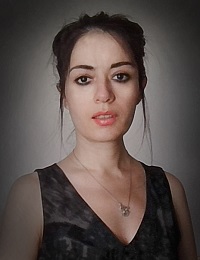 The Industrial and Systems Engineering Department is pleased to welcome Dr. Aida Khajavirad as Tenure-Track Assistant Professor, beginning August 15, 2020.
The Industrial and Systems Engineering Department is pleased to welcome Dr. Aida Khajavirad as Tenure-Track Assistant Professor, beginning August 15, 2020.
Aida currently holds visiting positions at the Courant Institute of Mathematical Sciences of New York University and the Department of Management Science and Information Systems of Rutgers Business School. She received her PhD in mechanical engineering from Carnegie Mellon University in 2012, under the supervision of Professor Nick Sahinidis. She worked as an assistant professor of operations research and industrial engineering at the University of Texas at Austin during 2014-2016, and as research scientist in the Department of Business Analytics and Mathematical Sciences at IBM T.J. Watson Research Center during 2012-2014.
Aida’s main research goal has been to advance the state-of-the-art in the global optimization of Mixed-Integer Nonlinear Programming (MINLP) at theoretical, algorithmic, and software levels. To this end, her research builds upon and combines ideas from convex analysis and continuous optimization, integer programming and combinatorial optimization, and constraint programming. On the theoretical side, Aida’s research is focused on developing foundational theory to construct strong and tractable convex relaxations for a variety of nonconvex sets that appear frequently as building blocks of nonconvex MINLPs.
Her research in the convexification area has been supported by NSF and DOE. Together with Alberto Del Pia of UW-Madison, her work on convexification of multilinear sets has been recognized by the 2017 INFORMS Optimization Society Prize for Young Researchers. On the computational side, Aida has contributed to more than 30,000 lines of code to the state-of-the-art global solver BARON; her work has resulted in significant algorithmic improvements in the MINLP-software technology.
Recently, Aida has become interested in developing efficient optimization algorithms with performance guarantees for data science applications such as community detection and data clustering. In addition, she is enthusiastic about developing algorithms for nonconvex problems that arise from applications in chemical engineering and computational biology. At Lehigh, she is planning to pursue her methodological work while exploring new application areas by collaborating with the experts across the Rossin College.
